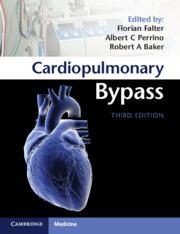Microcephaly is a marker of abnormal fetal cerebral development, and a known risk factor for cognitive dysfunction. Patients with hypoplastic left heart syndrome have been found to have an increased incidence of abnormal neurodevelopmental outcomes. We hypothesized that reduced cerebral blood flow from the diminutive ascending aorta and transverse aortic arch in the setting of hypoplastic left heart syndrome may influence fetal growth of the brain. The purpose of our study, therefore, was to define the prevalence of microcephaly in full-term infants with hypoplastic left heart syndrome, and to investigate potential cardiac risk factors for microcephaly. We carried out a retrospective review of full-term neonates with hypoplastic left heart syndrome. Eligible patients had documented indexes of birth weight, and measurements of length, and head circumference, as well as adequate echocardiographic images for measurement of the diameters of the ascending aorta and transverse aortic arch. We used logistic regression for analysis of the data. A total of 129 neonates met the criterions for inclusion, with 15 (12%) proving to have microcephaly. The sizes of their heads were disproportionately smaller than their weights (p less than 0.001) and lengths (p less than 0.001) at birth. Microcephaly was associated with lower birth weight (p less than 0.001), lower birth length (p equal to 0.007), and a smaller diameter of the ascending aorta (p equal to 0.034), but not a smaller transverse aortic arch (p equal to 0.619), or aortic atresia (p equal to 0.969). We conclude that microcephaly was common in this cohort of neonates with hypoplastic left heart syndrome, with the size of the head being disproportionately smaller than weight and length at birth. Microcephaly was associated with a small ascending aorta, but not a small transverse aortic arch. Impairment of somatic growth may be an additional factor in the development of microcephaly in these neonates.
